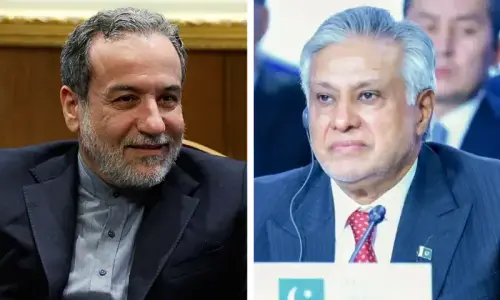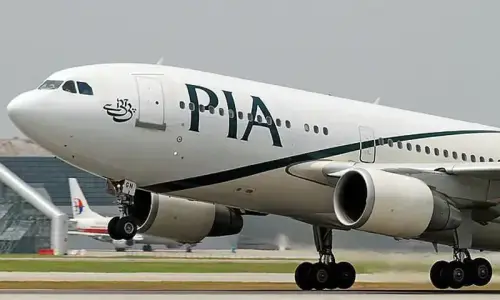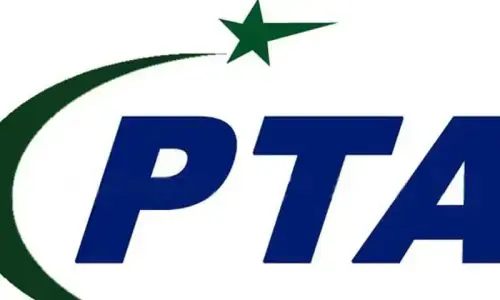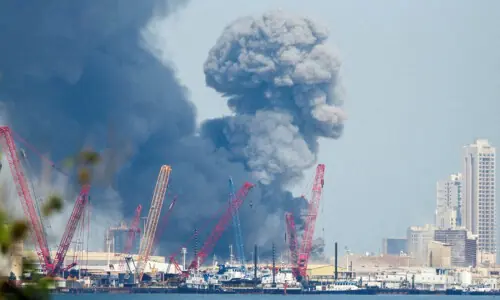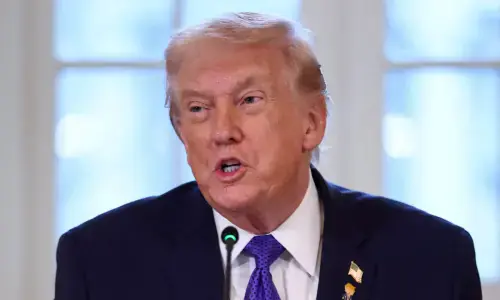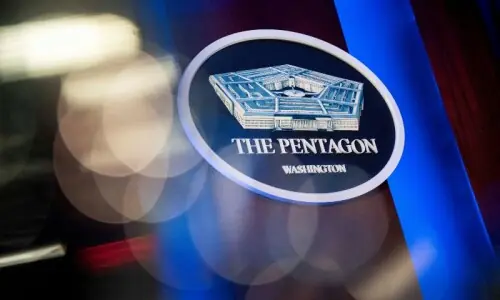ISLAMABAD: The government is going to provide gas to the residential sector only three times a day with the ‘bare minimum supply of liquefied natural gas (LNG)’ during December through March of upcoming winter to minimise gas shortages in the country.
This is part of the Gas Load Management Plan for winter 2021-22 presented to the Cabinet Committee on Energy (CCoE) at a meeting presided over by Minister for Planning and Development Asad Umar.
“Gas to residential sector shall be provided three times a day for cooking only,” the meeting was informed by the Ministry of Energy (Petroleum Division), adding that “RLNG diversion [to domestic consumers] to be made bare minimum keeping in view the operational stability of the system”.
It reported lower LNG availability in the coming months, particularly January, February and March. However, the Petroleum Division showed relatively smaller deficits against the demand based on clear intention that the bare minimum LNG would be allowed to flow to the residential sector. With these principles in mind, total shortfalls in December would be around 22mmcfd (million cubic feet per day), increasing to 137mmcfd in January and then going down to 75mmcfd in February and March.
The meeting was informed that gas supply to dedicated consumers — power and fertiliser sectors — on independent system outside the national pipeline network was expected to remain stable without any unforeseen eventuality. In this category, the supply and demand would remain unchanged and range between 1,061 and 1,200 million cubic feet.
In the pipeline network, power plants on the SNGPL (Sui Northern Gas Pipelines Limited) system will be provided RLNG as per the actual consumption of winter of last year with five per cent more supplies and any deficit will be recouped through furnace oil.
Fertiliser plants on both SSGCL (Sui Southern Gas Company Limited) and SNGPL systems are expected to operate uninterrupted and any local gas or imported RLNG diverted from captive power plants of the exports sector after switching to power grid will be supplied to the export industry.
Extensive media campaigns would be run by the gas companies and the government for conservation of gas and promotion of cheaper incentivised electricity for water and space heating.
Total supplies in the SNGPL system, without RLNG, are estimated at 884mmcfd in December, 902mmcfd in January, 880mmcfd in February and 850mmcfd in March. SSGCL would, on the other hand, will have 995mmcfd in December, 1,005mmcfd in January and 995mmcfd each in February and March.
After going through the presentation, the CCoE directed the Petroleum Division to submit a detailed impact analysis of different policy options for developing the Gas Load Management Plan for winter 2021-22 at the next meeting.
The Oil and Gas Regulatory Authority (Ogra) presented the status of revision in rules regarding punitive measures and fines. The meeting was informed that fines would be imposed for non-compliance with the licence conditions and for violation of Ogra rules by the licensees. The fines have been revised for licensees across petroleum value chain. The maximum penalty for major violations starts from Rs10 million to Rs500m.
The CCoE directed Ogra to consider additional measures against illegal gains and fraudulent activities of the licensees. It was also directed to send a summary to the Cabinet Division within two weeks to implement the changes as soon as possible.
Ogra also presented a report on establishment of a monitoring system for sale of petroleum products. The CCoE directed regulator to implement an end-to-end automation and digitisation of reporting to account for all transactions in future and to have accurate data collection.
The Petroleum Division and Ogra will jointly develop a strategy for automation of data collection and digitisation of transactions across the value chain.
Published in Dawn, November 12th, 2021














